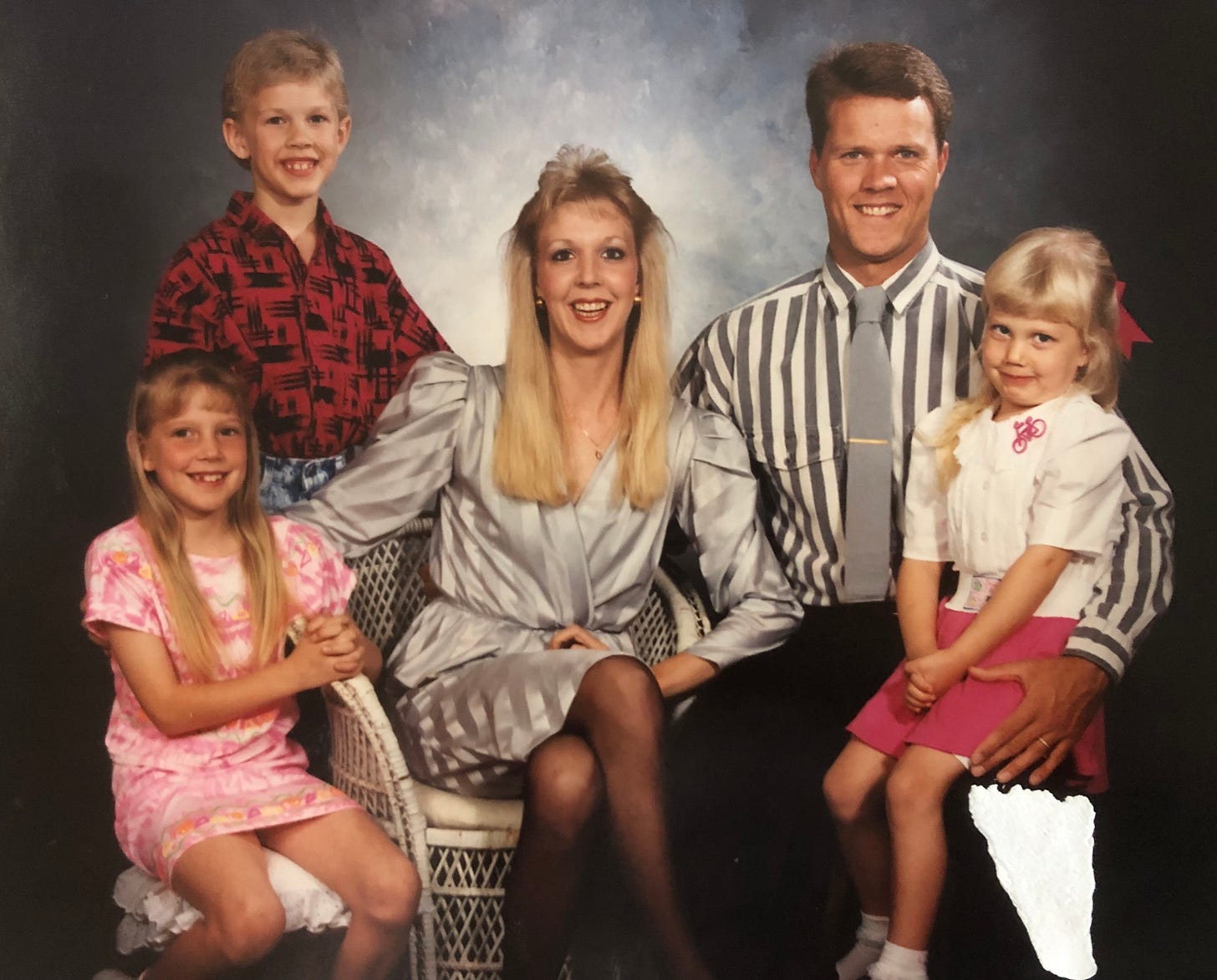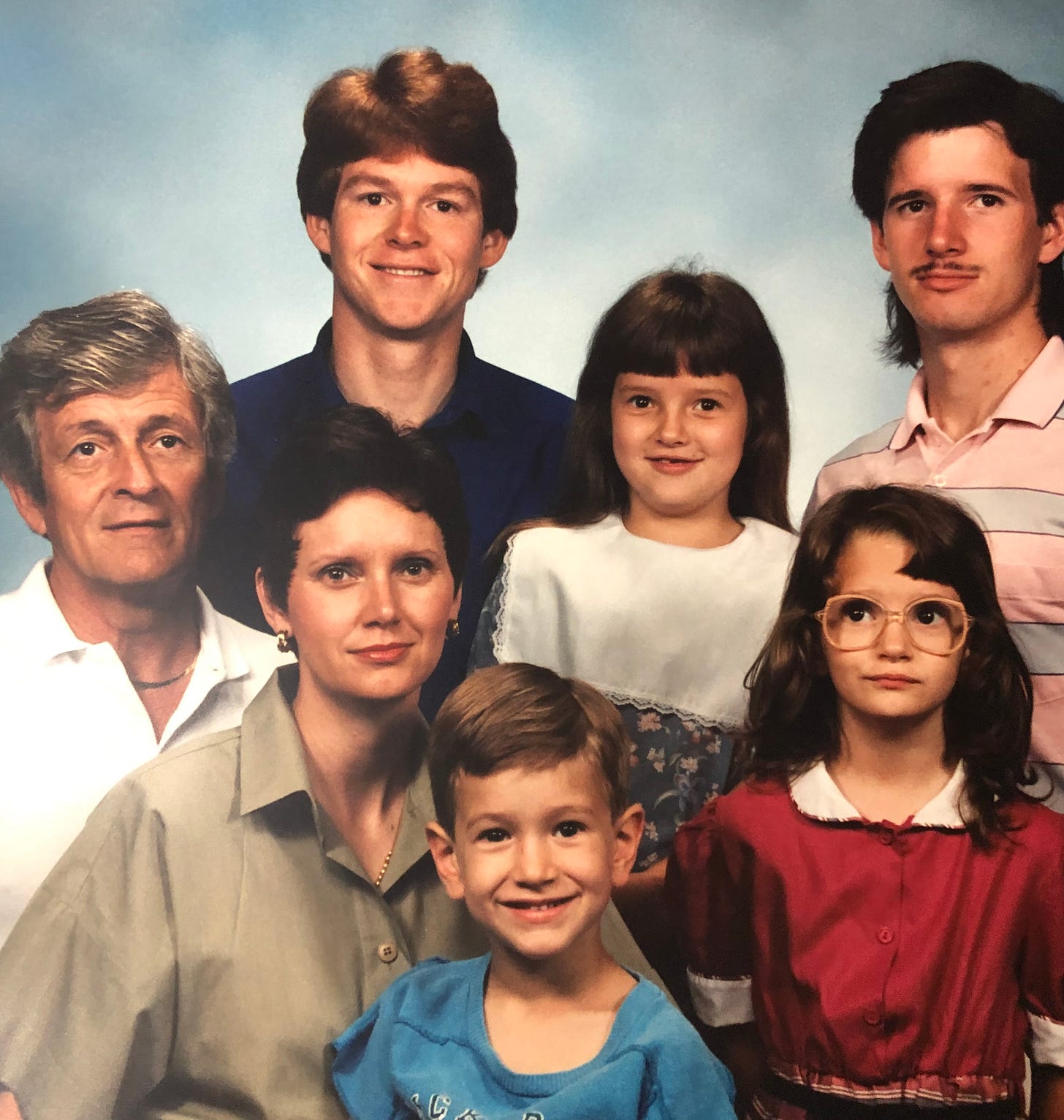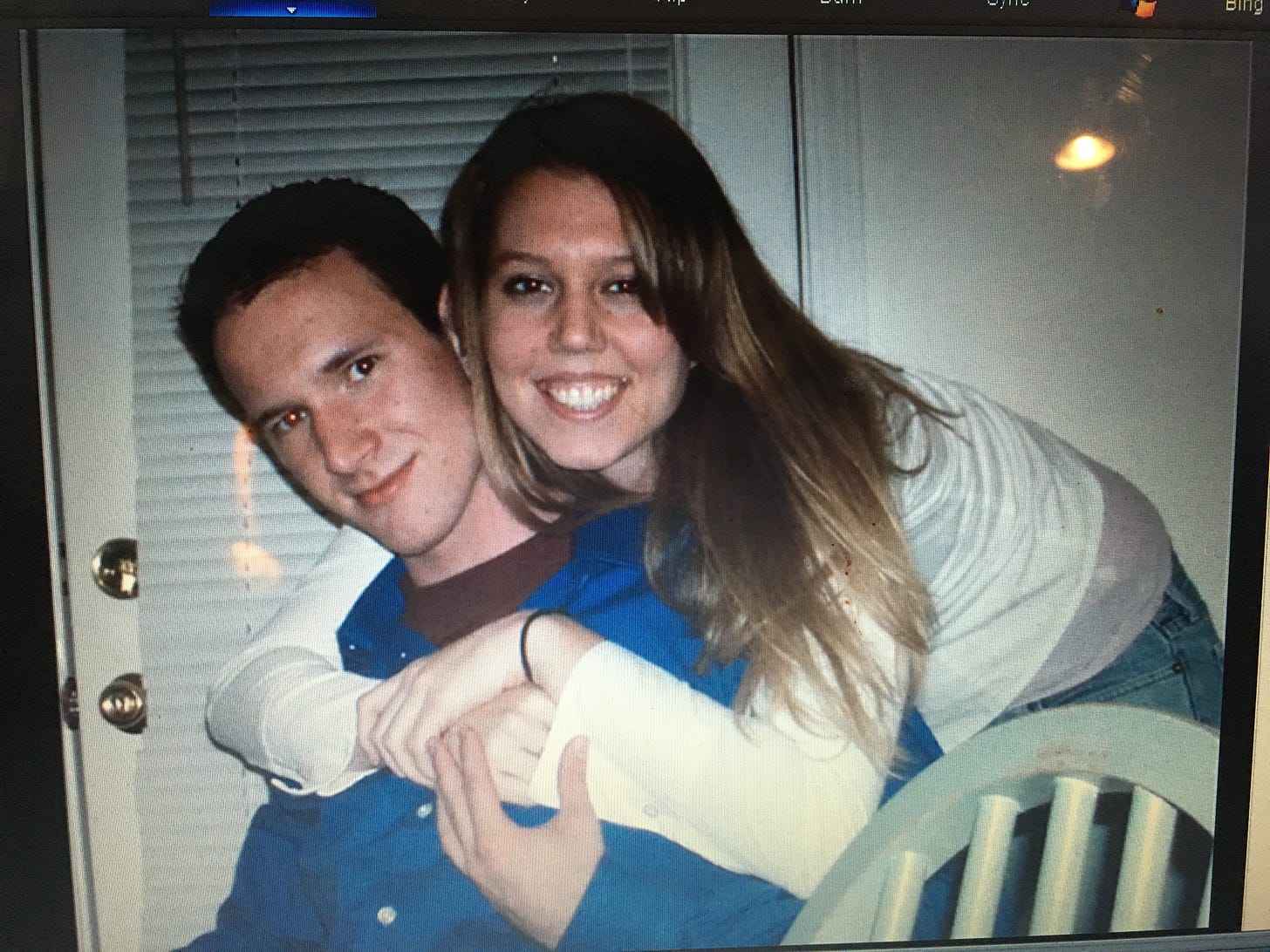My parents got divorced when I was thirteen.
Former high school sweethearts who had gone on to marry other people, have babies, divorce their respective spouses, and then reconnect in their mid-twenties, my mom and dad were polar opposites in many ways. My dad, Tom, was a conservative Republican. My mom, Mary, was a curious Democrat. Both of them loved God, but in very distinct ways. My dad played drums in our church band. My mom was the ASL interpreter. He was dogmatic and sure of his newfound Christian faith. She was uncertain about the boxes people tried to build around God.
Still, they shared one thing in common (besides their ridiculously good looks), and that was their dedication to forging a different path than that of their parents. Even if that path shared some of the same wonky footstones, my parents were resolute in their determination to break the generational curses of addiction and abuse that had, in part, plagued their own families over the years.
Both children of divorce themselves, my mom and dad raised me and my siblings together as a whole, decidedly unbroken despite the blended aspect of our nuclear unit and the divorce that followed in our teens. Not a one of us kids has a “whole” biological sibling, but try telling us that we don’t have “real” brothers and sisters and you’ll find out faster than you can say “Uncle!” just how related we are. In large part, I credit that sibling devotion to Tom and Mary. They made our home(s) a safe place to land, even when the foundations felt shaky. We never had to worry if we would be fed, or loved, or have what we needed to thrive. We knew both who we were and whose we were.
My childhood wasn’t perfect; in truth, I think it was even better than that.
It was good.
Pierce’s dad, Ray, is much older than his mother, Wanda, and they’ve been married this May for 52 years. They met in the Air Force. At that time, my father-in-law had already been married once before and had a son. My in-laws went on to have four more children together—the youngest of which is my husband—and I’ve watched them over the years with curiosity and fascination. They’re generous with themselves, their children, and each other. Like my mom and dad, Ray and Wanda also provided an imperfect haven for their kids, and it’s a haven I’ve watched Pierce and his siblings return to again and again with all the hallmarks of familial intimacy: joy, frustration, and, most of all, love.
These are the foundations upon which our marriage is built, the marriage Pierce and I celebrate today.
I make no secret of the fact that we would not be the people, the couple, or the parents we are now without the cornerstones that held us into place. We celebrate fifteen years of rich, joyful marriage today because of our own parents’ determination to be the one thing all kids need from their grown-ups:
Good.
Not perfect. Not endlessly patient. Not without their own trauma.
Just good, all the way through.
What do I mean? After all, a cup of coffee is good. A sunny day is good. We use this language to define stuff we enjoy all the time, but I put forth that a thing cannot be “good” if it is not first moral. God is good. And because He is good, so are people. We cannot undo this status; it is inherent within us as created objects of the Father’s love. We can, however, reject that goodness in favor of what brings us satisfaction, and those two things are not always the same. Ask any child whose parents pursued the latter over the former, and I bet they’ll agree.
In essence, goodness is just this: the quality of being virtuous or beneficial in some way.
And what is a virtue? A high standard. A mark upon which we can measure ourselves.
None of our parents had the answers to the universe. They made mistakes. They sometimes threw in the towel when they should have kept at it, and they sometimes kept at it when they should have left well enough alone. But they set a high standard for what it means to love, and to forgive, and to savor this life, and Pierce and I understood ourselves better because we knew how to measure the weight of our choices against it.
When I was first introduced to my husband, I was a junior in college and fresh off a serious break-up. I had met a boy two years prior at university orientation and then proceeded to fall head over heels in love with him. It was no flight of fancy. We almost eloped. In truth, I thought I would eventually marry him. That is, until I didn’t.
That sad summer night—as I sat peering out over the living room from our upstairs balcony, my legs dangling between the rails—I could barely form enough words to tell my mother I had just broken up with my boyfriend. Sobs wracked my chest. I was undone, sick to my stomach from the loss. Between hiccups and shuddering breaths, I heard my mother call up to me from the living room.
“I know it doesn’t feel like it now,” she said, her eyes tilted up at me with maternal exasperation, “but, one day, someone else is gonna come along who is everything that boy was and more.”
It didn’t take long for me to understand just how right she was.
On a brisk fall night in September 2005, four months after I cried to my mother, Pierce came strolling up the sidewalk toward me and my friends and I could immediately tell he was different. Steady. Certain of himself in a way that was neither arrogant nor pushy. He spoke barely five words to me that night, loud as it was in a college bar, but the standard had been set. I sensed the Spirit press upon my heart that this tall, lanky boy in the Le Tigre button-up and Georgia Southern baseball cap was someone to pay close attention to. And so I did.
Our mothers and fathers taught us that if we choose to listen well and pay attention to our own hearts, we can steward our children toward different, kinder futures. We can take our hard-won lessons and offer them as gifts. We can watch our kiddos cry and stand firm because we know, even if they don’t yet, that this is just the beginning. It’s just the start of what we have built for them…if they have courage enough to believe it.
When it comes to marriage, Pierce and I don’t know all the ways to make a union work. Each one is as different and as complex as the individuals within it. But thanks to the goodness of the ones who came before us, we do know how to make our marriage work. Thanks to Tom and Mary, Wanda and Ray, we walked into that sweet sanctuary fifteen years ago with everything we needed to love each other well.
And, for that, I clink my glass to his, remember those four wonderful people who taught us the way, and whisper, “Thank you.”
(Oh, and happy anniversary, P. I still like you a whole, whole lot ♥️.)







